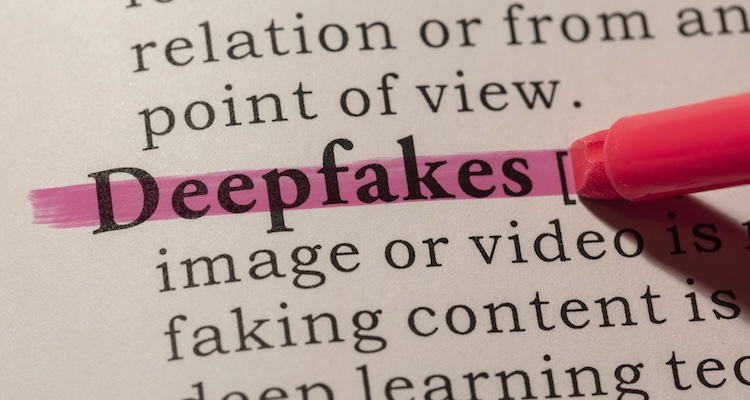The Real Deal: Deepfake Sex Sites Going, Going—Gone?
At least one is out of business, with another possibly to follow

Signaling a turning point toward curbing the proliferation of non-consensual, AI-generated adult content sites, as reported by NPR early this month, MrDeepFakes users were initially greeted with the message, “A critical service provider has terminated service permanently. Data loss has made it impossible to continue operation.” Shortly thereafter, the site has completely vanished, leaving behind nothing but Page Not Found.
Meanwhile, CivitAI, another controversial sex-related deepfake platform, is experiencing its own troubles.
After Visa and Mastercard cancelled their services with CivitAI, forcing the site to look for alternative payment options, Justin Maier, CivitAI’s CEO, announced, “Civitai is not shutting down. We have months of runway. The site, community, and creator payouts continue unchanged. We just need a brief boost from you while we finish new payment rails.”
CivitAI may have anticipated the loss of this financial footing, as a month previously, it had implemented a set of new rules aimed at limiting its users’ ability to create sexually explicit LoRAs (Low-Rank Adaptations) of public figures.
Alasdair Nicoll, CivitAI’s Community Engagement Manager, expressed dismay during a Twitch live-stream—as noted by Unite.AI—saying, “These are not changes that we wanted to make. This boils down to new and impending legislation. There’s deepfake laws out there, there’s AI porn laws…payment processors, and ultimately Visa and MasterCard are spooked; they don’t want to be sued, and they’re ultimately driving these changes.”
A law too far or not far enough?
Nicoll may have been referring to the recently signed federal Take It Down Act, which criminalizes the dissemination or threat to disseminate non-consensual user-created and AI-generated explicit content.
Along with forcing sites to delete such materials within 48 hours after being notified by the offended party, it also demands the same for any copies that might remain.
While there’s long been a call for something, anything, to prevent the spread of non-consensual, image-generating explicit sites—and the Take It Down Act may have been partially responsible for MrDeepFakes’ closure and Mastercard and Visa cutting ties with CivitA—others object to the law’s potential conflict with the First Amendment.
Freedom versus abuse
Quoted by the Associated Press, a spokesperson for the Electronic Frontier Foundation, a respected digital rights organization, said, “While the bill is meant to address a serious problem, good intentions alone are not enough to make good policy, lawmakers should be strengthening and enforcing existing legal protections for victims, rather than inventing new takedown regimes that are ripe for abuse.”
RECOMMENDED READ: Do You Hear What I Hear: Deepfakes in Audio Erotica
Furthermore, the law’s insufficient barriers against trivial or biased complaints are troubling, with the EFF adding, “The law’s tight time frame requires that apps and websites remove speech within 48 hours, rarely enough time to verify whether the speech is actually illegal.”
The Cyber Civil Rights Initiative has concerns as well, telling AP the Take It Down Act is “Unconstitutionally vague, unconstitutionally overbroad, and lacking adequate safeguards against misuse.”
For example, sites might be forced to delete unclothed, non-sexualized images even when they may have journalistic value or erotic, consensual content that happens to offend someone somewhere.
Crimes and punishments
Well-intended, ill-conceived, or both, the Take It Down Act seems to be sending an important message.
Contractors to these revenge porn and non-consensual image generation sites have also taken note.
In the case of MrDeepFakes’ service provider, it may got the message and made the strategic decision to get out while the getting’s good.
On the other hand, though CivitAI may not currently be facing legal troubles, the site is definitely experiencing financial woes due to Mastercard and Visa’s cancellation of payment services.
The bottom line is profit. Laws are one thing, but what might prove to be deepfake and revenge porn sites’ undoing is when no one will do business with them.
Image Sources: Depositphotos

















